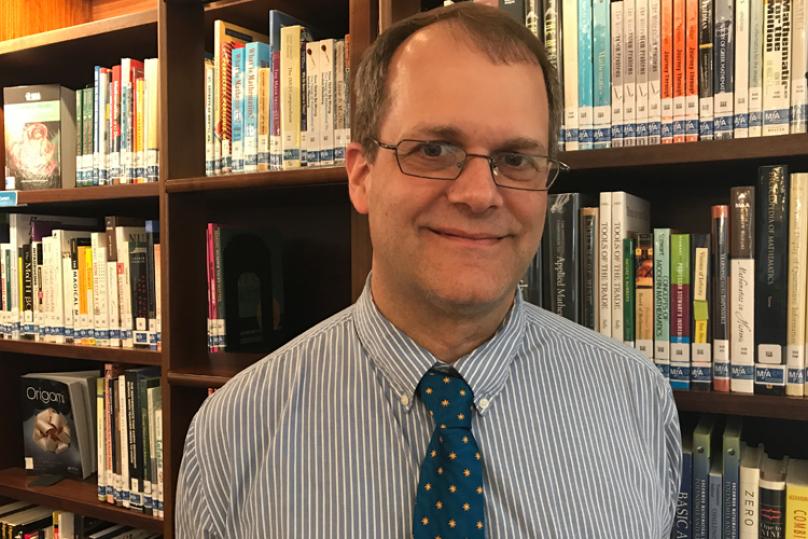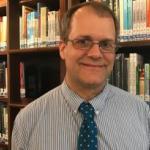
By David Deutsch, MƒA Master Teacher
To put it kindly, my teaching career has entered its second half. By rough estimate, that amounts to 3,000 students, or 30,000 exams graded (at the ridiculously low rate of 10 tests per year), surely double that number of lab reports reviewed, and I don’t care to estimate the number of homework problems. One might add to that eight Chancellors, five principals, eight assistant principals, and the friendly faces of perhaps 200 direct teaching colleagues. In a recent campaign, MƒA asked us teachers to consider why we stay teaching. Without stooping to present an overly simple response, the opportunity to continue learning must count as part of that #WhyIStay answer.
Now, that’s hardly a revelation to MƒA’s more than 1,000 professionals whose common bond lies in actively seeking, and finding, a great space for professional growth. The number of pathways we found into our classrooms surely reflects the large and diverse group we have become. In my case, that meant an all too brief journey from college graduation, to a six-week student teaching assignment, to a New York City classroom. Near the close of a very challenging first year, my principal approached me about attending a three-week summer program at Wesleyan University. Tired and eager to spend a summer relaxing, I agreed with considerable hesitation. In retrospect, that decision marked a real turning point in my career. Yes, the content mattered. Over those three weeks, I got my first real taste of the power of the graphing calculator in instruction (gosh I’m dating myself!), forced myself to rethink basic algebra, geometry, biology, and chemistry topics, and even re-shaped my personal definitions of math (a study of patterns) and science (a study of patterns in nature). The true brilliance of that summer realized itself in the collection of people. Teachers at all stages of their careers, from across the country, mixed with the exceptionally caring Project to Increase Mastery of Mathematics and Science faculty at Wesleyan. We engaged in all kinds of experiences, from touring elevator research facilities to a day exploring on the Long Island Sound. I had my first glimpse at the rings of Saturn attending an open telescope night at the Wesleyan observatory. Perhaps most important, I got to know a now career long friend and colleague (and MƒA Master Teacher) Paul Winston. If you know him, enough said.
By that summer’s end, my mind was set. Rather than feeling exhausted, I felt energized by what I had seen and done. In the many summers since, I have often had the great fortune to gain acceptance into like-minded programs. Some, like the Wesleyan program, received funding from industry or private sources. Others, like the multiple Research Experience for Teachers (RETs), looked to government funding. I have travelled geographically as far as Seattle or as near as Brooklyn, and academically from astronomy research (red quasars!) to nanoparticle research. Through it all, several guiding principles have become clearer to me. First, it remains completely acceptable, in fact necessary, to express joy when comprehending (or even attempting to comprehend) something new. Second, the learning process remains completely humbling. Empathize with those new learners! Finally, and I’m paraphrasing Sam Silverstein (the brilliant founder of the Columbia RET program) here, we have an absolute obligation to share our experiences with students, colleagues, and the larger community. When I look around my physics classroom, I see artifacts of those summer programs. However, the much less tangible, but so much more valuable benefit to my students must lie in conveying those guiding principles to them. I’m recalling particularly the process of applying to be an astronaut many years ago and sharing the procedure with my classes. Even as the effort “failed” (alas, no NASA paycheck for me!), the sort of giddy classroom mood as each deadline approached completely justified the venture.
As noted, the MƒA community hardly needs my remembrances to understand the point. In fact, over the last four years it has been my good fortune to connect with other MƒA teachers at a host of professional learning events. Simply reading other “Teacher Voices” pieces on the MƒA blog has reminded me to remain humble and that I still have a long way to go, especially when it comes to pedagogical strategies. So why speak up now? Maybe it’s the collective result of the past twelve months in this nation. It feels like the right time to publicly express my gratitude for the continued learning opportunities that have been made available to me, to declare that I have done my level best (despite any imperfections) to translate those opportunities into better service to my students, and to request, or even demand, that similar opportunities remain available my esteemed younger colleagues. After all, they will chart the course of American education over the next generation. If we all share our stories, perhaps we can move the needle in favor of greater education funding as budgets are debated and policy makers plan. For that I would be truly grateful.
Program Websites:
- Columbia Summer RET (application deadline 5/1!)
- Cornell Summer RET
- University of Washington Physics Education Group (They run an amazing summer institute)
- Summer Programs at NYU-Tandon School of Engineering (Including RET)
Excellent Astronomy Experiences in the New York Area:
